A Comprehensive List Of The 24 States (Along With D.C.) That Have Expungement Programs For Weed
In recent years, cannabis legalization has taken the country by storm.
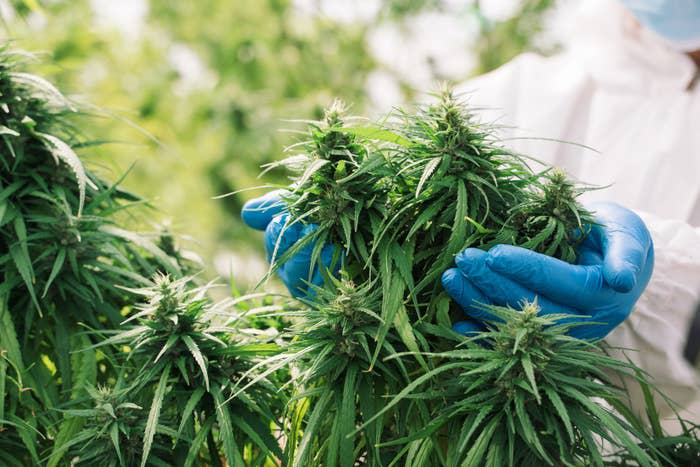
So far, 19 states have fully legalized the substance, along with another 25 states that allow for some form of medical use and, in some cases, have decriminalized nonmedical use. In total, only four states remain that deem cannabis fully illegal — not even permitting nonpsychoactive CBD use.
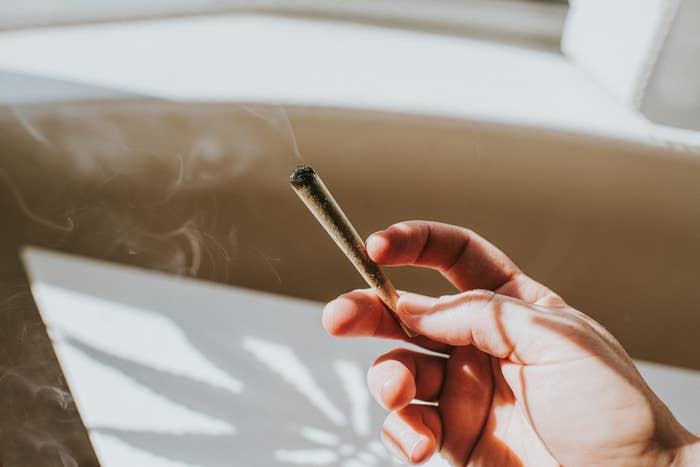
And, for many people, it's long overdue — not only because a majority of Americans support legalization, but also because of the racist legacy left by the decades-long War on Drugs.
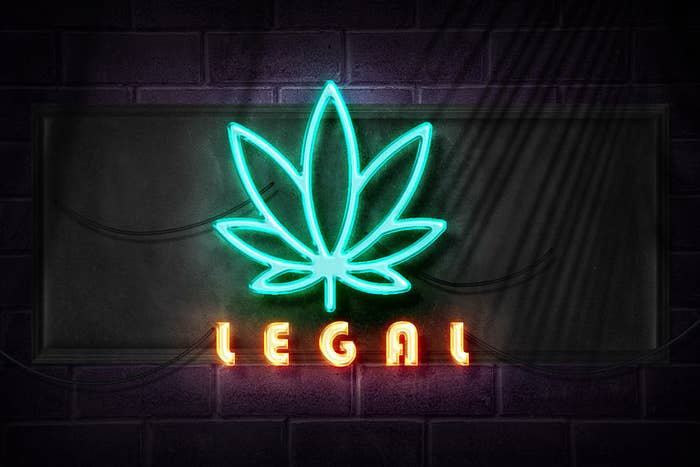
Statistically, prisons are overpopulated by Black and brown folks, many of whom (1 in 5) are serving sentences for nonviolent drug crimes. Additionally, Black people are nearly four times more likely to be arrested for cannabis possession than white people, despite having the same rates of consumption. And, depending on the state, that figure can actually jump to 10.
Now that federally legal cannabis is on the horizon (and has been for a while) constituents are pushing for a more equitable industry — notably, one that actually serves the people it previously criminalized.
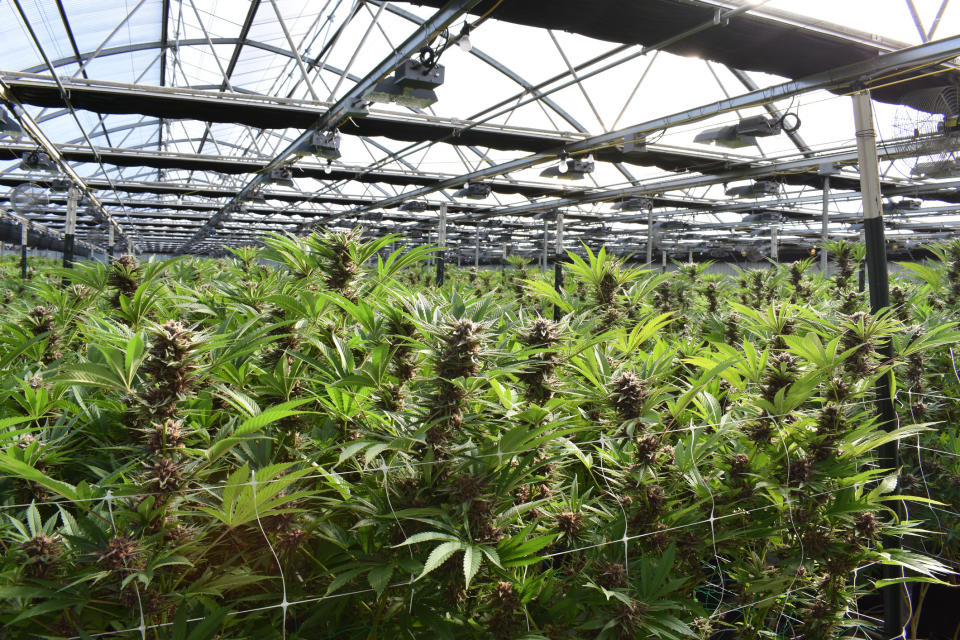
In 2020, Insider reported that 600,000 people were charged with cannabis possession, with law enforcement targeting people of color. Meanwhile, the legal industry remains overwhelmingly dominated by rich white male CEOs. According to the report, a mix of racial profiling, high economic barriers of entry, and laws prohibiting former inmates from running dispensaries all ensure that people of color are disproportionately barred from entering the legal business.
Which is why activists and lawmakers are pushing for cannabis legislation to include the retroactive expungement of criminal records. Depending on the state, people can petition courts to diminish certain charges or wipe them from their records entirely. In other cases, records can be sealed from the public. Scroll further to see which states offer expungement and how it all works:
1.Arizona:

Since mid-July of this year, Arizona courts are required to expunge arrests, charges, and convictions upon petition. Expungements can be made for "certain possession, consumption, transportation, and cultivation offenses," according to the state's Prop 207, passed last year. For more details and specifics, you can click here.
2.California:

The Golden State legalized recreational weed use back in 2016 by Prop 64. Stipulated in the law was that individuals who had completed a sentence for a swath of cannabis-related offenses could petition the court to have their convictions "dismissed, sealed, resentenced, and/or redesignated [from a felony to a misdemeanor], depending on the offense." No hearing is required to grant or deny the petition.
And, in 2018, AB-1793 restructured California's expungement process to come from the top-down and offer systemic relief, requiring courts to identify all eligible cases by July 2019 and make decisions regarding their status a year later. As of late September 2021, nearly 60,000 people have had their records expunged in Los Angeles County alone.
3.Colorado:
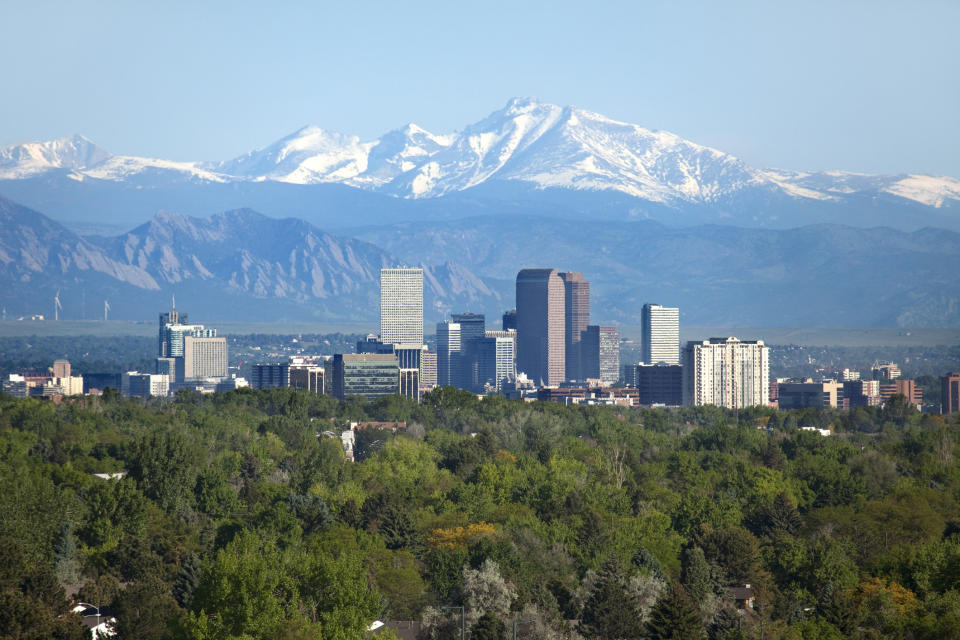
According to a 2017 Colorado statute, courts are required to seal the records of those whose misdemeanor cannabis offenses that would have been legal on or after Dec. 10, 2012 (when the state legalized weed). The eligibility of which convictions can be sealed was expanded this year to also include a Class 3 felony cannabis cultivation offense, in addition to starting a mandatory relief process.
Colorado also has a pardon process (different from expungement in that records are still visible, but the individual is formally forgiven). And, in late 2020, an unconditional pardon was given to all people who had been convicted of possession of one ounce or less of the substance prior to legalization.
4.Connecticut:

Upon petition, courts must destroy convictions and other criminal records in cases where the charges have since been decriminalized. Connecticut also has both petition-based and automatic expungement processes in accordance with the state's 2021 legalization bill. Automatic relief for certain possession offenses — made between Jan. 1, 2000 and Sept. 30, 2015 — kicks in Jan. 1, 2023.
5.Delaware:

It's important to note that Delaware has not yet legalized recreational cannabis. However, as of 2019, petitions for expungement are available to those who were convicted of possessing a "personal use quantity" under the age of 21 upon their 21st birthday. Additionally, anyone convicted of a "single offense" relating to cannabis possession, use, or consumption prior to Dec. 18, 2015 is eligible for mandatory expungement.
6.Hawaii:
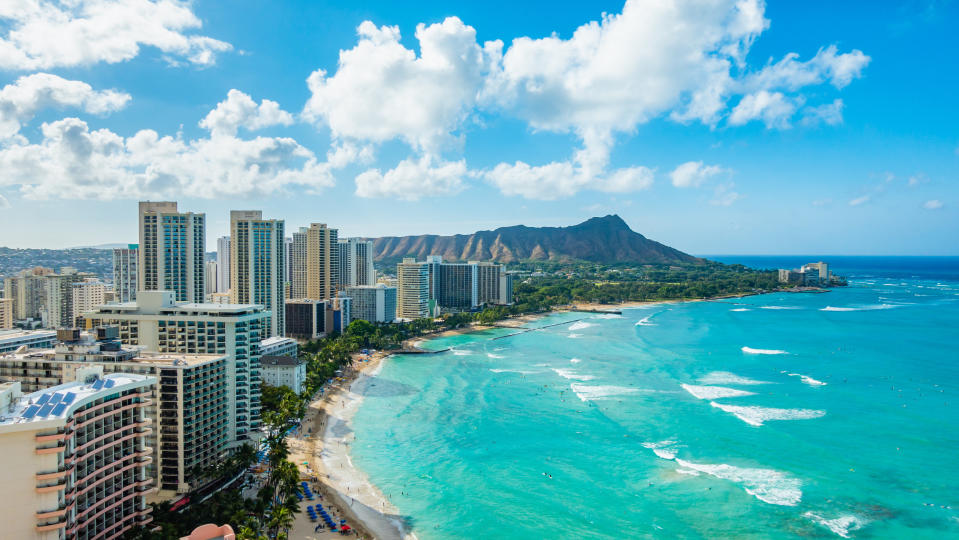
Hawaiian courts must grant expungement, upon petition, of a conviction for the possession of three grams or less — if no other charges were made. The state has only decriminalized, not legalized, recreational cannabis use.
7.Illinois:

In 2019, the state authorized a tiered automatic expungement process for "minor cannabis offenses," which is characterized as involving less than 30 grams, no penalty enhancements, and no violent crimes. For misdemeanors and Level 4 felonies featuring greater quantities of weed, expungement can be granted on petition. For non-convictions, arrests must be automatically expunged after a year if no charges were filed, if they were vacated, or if the person was acquitted.
Upon the state's legalization of cannabis on Jan. 1, 2020, Gov. J.B. Pritzker pardoned more than 11,000 people with low-level cannabis convictions. However, hundreds of thousands — an estimated 700,000 — are still waiting for their records to be cleared.
8.Massachusetts:

According to state law, any "recorded offense which is no longer a crime" is eligible to be sealed, "except in cases where the elements of the offense continue to be a crime under a different designation."
9.Maryland:

Maryland has a similar statute to Massachusetts, in that a person may file a petition for expungement if they were convicted of a crime and "the act on which the conviction was based is no longer a crime." This also includes conviction for cannabis possession, a petition for which may be filed four years after a sentence (as well as probation for the sentence) is served.
10.Michigan:

The state's HB-4982 enacted a streamlined process to set aside (or cancel and essentially overturn) certain cannabis misdemeanors that have been decriminalized. Meanwhile, HB-5120 allows for people to appeal if their records have been decided to not be set aside by the court.
11.Minnesota:

Minnesota decriminalized cannabis possession of up to 42.5 grams back in 1976, and has since then medically legalized the substance. However, recreational use remains illegal. But, in accordance with previous legislation, a person convicted of misdemeanor cannabis possession prior to 1976 may petition for expungement as of 1978. For a full breakdown on the various fines and sentences associated with the possession, use, sale, and cultivation of cannabis, click here.
12.Montana

Montana stipulated expungement in its legalization bill, passed in 2020 and made effective on Jan. 1, 2021. As a result, anyone serving or completing a sentence for an act that's no longer a crime (or penalized less severely) can petition for expungement, resentencing, and/or redesignation.
13.North Dakota:

Currently, individuals may petition to seal their records if they are found guilty of a first offense possession of one ounce or less of cannabis or two grams or less of THC, with the stipulation that they are not convicted of a further violation of the law outlined in the bill within two years.
In 2019, the state's Pardon Advisory Board passed a policy change "that will allow people with low-level marijuana convictions to apply for pardons and have their records wiped clean if they don’t commit another crime for five years." An estimated 175,000 convictions are eligible for pardons. As of now, the state has only decriminalized — not legalized — cannabis.
14.New Hampshire:

Anyone who was arrested or convicted before Sept. 16, 2017 for possessing, transporting, or acquiring 3/4 ounce of cannabis or less — i.e. the decriminalized amount — can petition the court to annul the arrest and court record. For more information on what's been decriminalized in the state, click here.
15.New Jersey:

The state's 2019 S4154 bill expanded expungement eligibility to a number of cannabis convictions, as well as set up an "automated 'clean slate' process" for sealing specific conviction records from the public. The bill also stipulates that records be sealed automatically upon completion of a sentence and parole. For more details on the process, click here.
16.New Mexico:
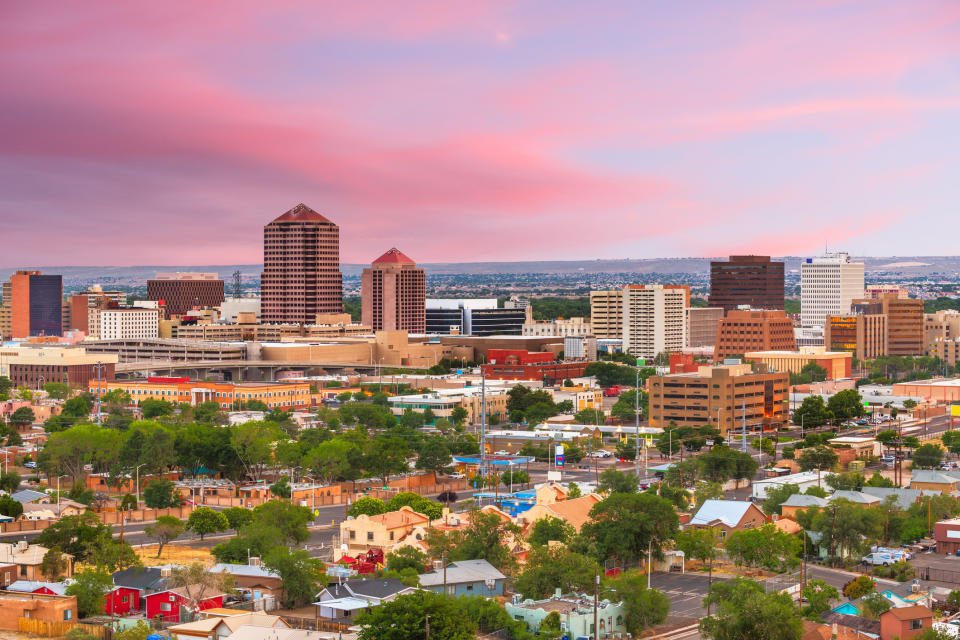
Upon legalization in 2021, the state put into effect an automatic expungement process, whereby a person charged, convicted, or arrested for an offense involving cannabis will have their public records erased after two years. This applies to acts that are no longer illegal or would have yielded lesser sentences.
17.Nevada:

Upon petition, people may have their records sealed for an offense that is "no longer punishable as a crime" — unless a prosecutor can establish "good cause" to not grant the petition.
And, four years after Nevada legalized cannabis, the state's Board of Pardons Commissioners passed legislation to pardon those convicted of minor cannabis offenses. More than 15,000 people were pardoned by the policy, which covered those convicted of the possession of one ounce or less of weed from January 1986 to January 2017 (when the state's legalization officially took effect). For more details, click here.
18.New York:

New York's 2019 SB-S6579A required automatic expungement for those convicted of the possession of two ounces of cannabis or less. As a result, more than 150,000 people had their records cleared. Additionally, the state's legalization bill — passed earlier this year — expanded who could be eligible for expungement to include certain misdemeanor sale offenses and felony possession.
19.Oregon:

This state has a couple of processes for overturning and reducing previous cannabis-related convictions. After legalizing weed in 2016, the state set up a set-aside process for those under the age of 21 who were convicted of possession, delivery, or manufacture — as long as they complied with their sentence and have no other offenses (excluding vehicle-related violations). 2019's SB-420 and SB-975 expanded expungement eligibility, as well as waived court filing fees, eliminated the need for a background check, and set up an easier online process.
20.Rhode Island:

As of 2017, any person with a first offense may petition for the expungement of records related to convictions that have since been decriminalized. Expungement should be granted after a court hearing and the payment of all fines and fees.
21.Utah:

Only medicinal use is legal in Utah. In 2020, streamlined process for expunging conviction records relating to medical use was put into place two years after medical legalization.
22.Virginia:

As of 2021, SB-1406 provides for the automatic expungement of certain misdemeanor possession convictions and limits the public's access to them, prohibiting employers and others from asking about them. The bill also allows several previous cannabis felonies and misdemeanors to be expunged by petition if the court finds their continued existence and dissemination a “manifest injustice." However, a major caveat is that expungement is scheduled for July 1, 2025.
23.Vermont:

Similar to many states listed above, Vermont has a pretty basic expungement process: People may petition for the restitution and expungement of records of offenses that are no longer crimes upon the completion of their sentence. The court will grant the petition if it decides that doing so is in the "interest of justice." Upon legalization in 2020, S.234 authorized automatic expungement for possession of two ounces or less of cannabis prior to January 1, 2021, which will take effect in the new year.
24.Washington:

As of 2012, Washington provides "clemency relief" to certain individuals who have convictions relating to cannabis possession. The Marijuana Justice Initiative aims to "provide an expedited process to grant pardons" to those with "a single misdemeanor conviction." To qualify, the conviction must be for an adult 21 or over and have taken place between January 1, 1998 and December 5, 2012, Roughly 3,500 individuals are eligible under this Initiative.
And, as of July 2019, SB-5605 maintains that people may also apply to vacate their conviction records.
25.Washington, D.C.:
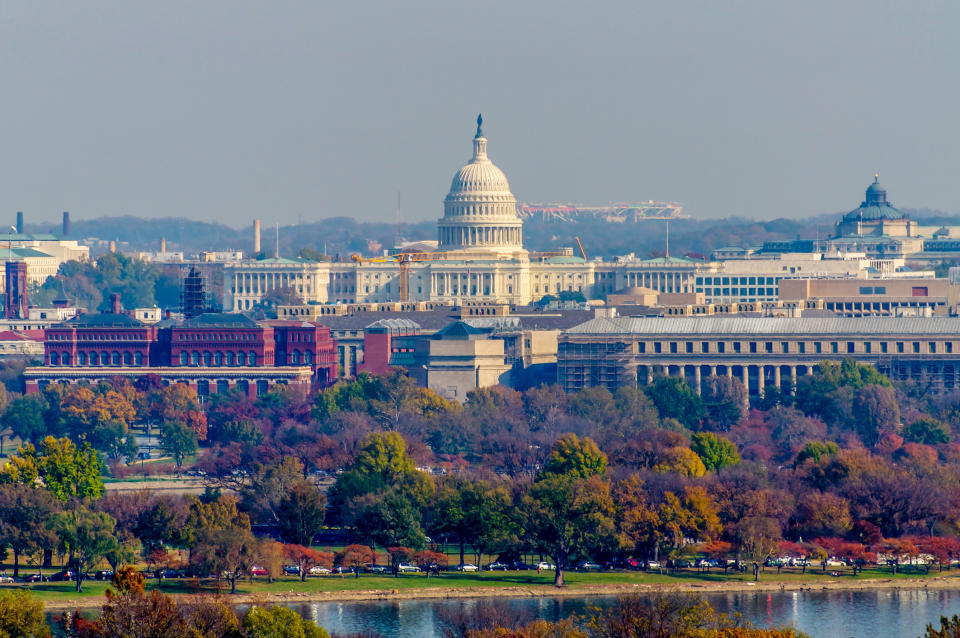
Washington, D.C. presents an interesting case: While possessing weed was legalized back in 2014, the sale of cannabis remains illegal (essentially, you can gift someone weed, but you can't have a fiscal transaction surrounding it). However, D.C. law allows for people to apply for the expungement of all relevant public records of convictions after their charges are dismissed. The law also stipulates that petitioners will not be guilty of perjury if they fail to "acknowledge" any arrest, trial, or indictment made in connection with their previous, expunged offense.
So, in case you were keeping track, a total of eight states have some degree of legalization and/or decriminalization without expungement: Alaska, Maine, Missouri, Mississippi, North Carolina, Nebraska, Ohio, and South Dakota.
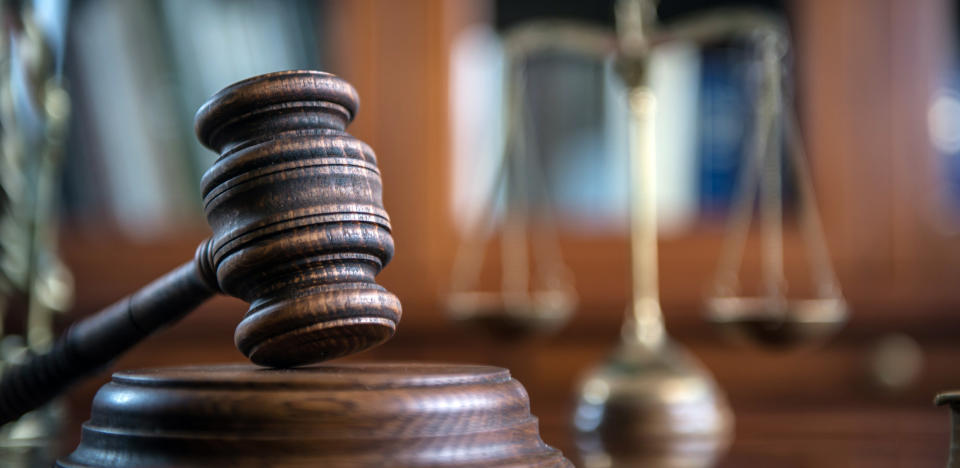
In addition, while Pennsylvania has not yet legalized the substance (and only decriminalized it in certain cities), the state already has an expedited clemency program — essentially a pardon from the court — for certain eligible nonviolent cannabis-related convictions.
